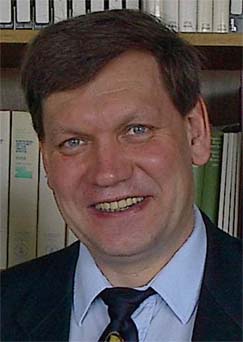Press Release - News from Moscow, Russia
The successful transplantation, that was made due to international cooperation on December 7, 2010, gave a new chance for life for 25 years’ old women. The patient had a severe and life-threatening stenosis of all trachea. She was not operable by classical means and would only benefit from a tracheal total replacement.
After having treatment in several countries – China, Israel, USA - with no success, she returned to Russia and came to the Centre of Surgery on very “right” moment. The specialists of this Center have just started the collaboration with professor Paolo
Macchiarini, well-known surgeon and specialist in the regenerative medicine who is Professor of Regenerative Surgery at the Karolinska Institutet in Stockholm and Director of the Department of General Thoracic and Regenerative Surgery and Intrathoracic Biotransplantation at the University Hospital Careggi in Florence. Russian specialists visited Florence in September 2010 and learned the method of professor Macchiarini in his lab.
According this method, the donor’s trachea is preparing during 17-20 days with many cycles of washing to eliminate all the donor cells – this allows to avoid immunosuppression after transplantation. After that the decelluarized trachea was repopulated with own stem and epithelial cells of the patient.
During several weeks after transplantation the patient’s body plays role of bioreactor in which the new organ is being formed. By now in Western Europe there was performed nine transplantations based on this method. The 10th was made in Russia. In this country this is the beginning of developing of regenerative medicine which may become an alternative for diseases of not only the upper airways but also will open new possibilities for regeneration of other organs.
This transplantation was supported by Russian Foundation “Science for Life Extension” which financed this project and organized the international collaboration.
Home:
Longevity Science Blog
and
Press Release - News from Moscow, Russia
Shorter weblink:
http://tinyurl.com/Science-for-Life-Extension
.
Labels: Paolo Macchiarini, regenerative medicine, Science for Life Extension, trachea, transplantation


